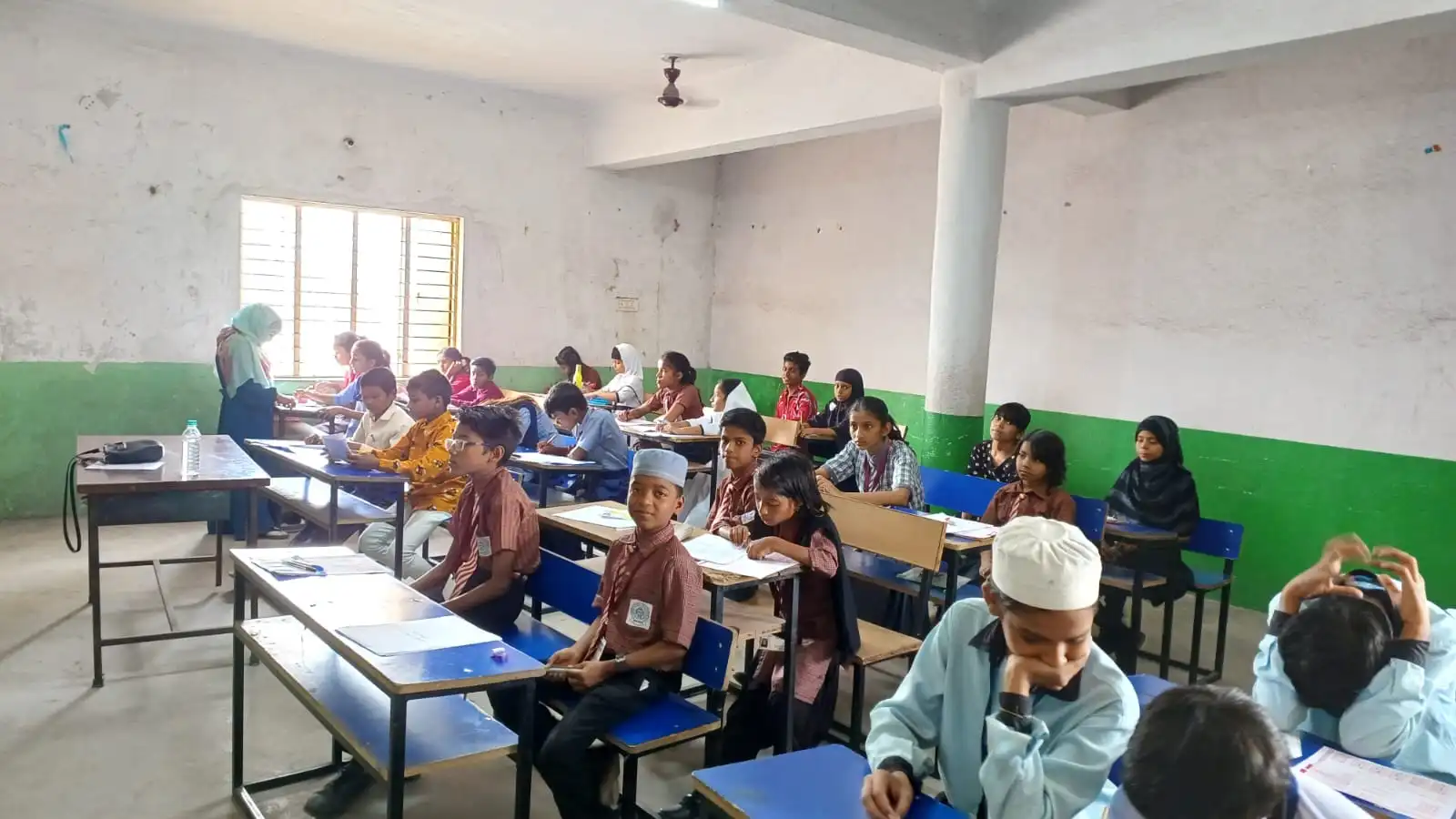The crucial role of education and the objectives of SDG 4:
Education is cited as a fundamental pillar that supports the development and growth of an individual and has a transformative role to play in shaping a brighter and better future. Apart from the individual growth it is also vital for the economic development and the societal progress of a country. In the United Nations Sustainable Development Goals (SDGs), education is recognized as SDG 4 out of the 17 goals outlined in the 2030 Agenda for Sustainable Development. The objective of SDG 4 is to ensure inclusive and equitable quality education and promote lifelong learning. This goal supports the reduction of disparities and inequities in access to and the quality of education.
Why education should be prioritized in urban slums:
If due importance is given to education in urban slums, a positive and lasting change can be brought about which will uplift both individuals and communities. A few key benefits would be:
- Empowering individuals to break the cycle of poverty – When quality education is made accessible to individuals, it gives them a chance to enhance their skills and knowledge. This contributes significantly towards improving their economic prospects, helping them to break the cycle of poverty that has been handed to them through the generations.
- Offering social mobility– Educated individuals including young adults, have access to better job opportunities which in turn increases their earning power and enhances their living conditions. It also fosters critical thinking and helps the individual understand their rights and take informed decisions about their lives.
- Contributing to community development – Education is that binding force that has a key role to play in promoting civic engagement and social cohesion by creating stronger and more resilient communities.
- Improving the quality of life – individuals gain an awareness about crucial health and hygiene issues through their education, and by practicing and implementing the good practices that they have learnt, their quality of life is impacted in a positive manner. It also reduces the crime rate since young adults can channelize their energies gainfully instead of resorting to illegal activities and violence.
- Empowering women – Educated girls and women are given equal opportunities to pursue a career and education thus promoting gender equality.
- Boosting economic growth – Economic development occurs with a well-educated workforce that attracts investment. This benefits the individuals as well as the entire community.
- Helping Sustainable development – Will Contribute effectively towards addressing environmental and social challenges and meeting the objectives of SDG4.
- Encouraging resilience and adaptability – Well-educated, well-informed individuals comprise an educated community that equips them to navigate the economic and social challenges successfully through their resilience and adaptability.
Prioritizing education in urban slums therefore comes with manifold benefits.
What role can the corporates and NGOs play in transforming the educational landscape?
Corporates can play a pivotal role in transforming the educational future of the underprivileged. The alignment of their CSR Efforts with SDG 4 can forge stronger community ties, develop a more skilled and educated workforce and steer positive change at the local as well as the global level.
In a bid to embrace their social responsibility, businesses are moving towards supporting the education of the underprivileged through an effective utilization of their resources, influence and expertise. Some of the key initiatives through which corporates are creating a positive impact include investment in the educational infrastructure and investment in technology to enhance the learning experience of the students.
Another key initiative encompasses offering scholarships to talented students to pursue higher education. They are lending their support in preparing students for STEM (Science, Technology, Engineering, Mathematics) education by sponsoring STEM programs and initiatives. As part of their corporate CSR strategy, they are also encouraging their workforce to volunteer and mentor students.
Non-Governmental Organizations (NGOs) are attempting to address educational disparities prevalent at the grassroots level by offering solutions and advocating for systemic change. They are working effectively towards designing and implementing innovative educational programs. While their primary focus is on improving the literacy rates, other favorable outcomes are the promotion of gender equality in education and access to a better quality of education through the distribution of learning materials. They are also instrumental in advocating for policy change and enhancing community engagement.
The Government of India has devised and launched educational programs with a view to enhancing the quality of education and also promoting its accessibility, and inclusivity. Samagra Shiksha Abhiyan, Mid-Day Meal Scheme, Pradhan Mantri Kaushal Vikas Yojana (PMKVY), National Scheme of Incentive to Girls for Secondary Education (NSIGSE), RTE Act (Right to Education, Beti Bachao Beti Padhao, Digital India Initiative, National Educational Policy (NEP) 2020: are a few key ones. A spirit of collaboration between the corporates, NGOs and the Government is imperative to guarantee a successful outcome.
The impactful partnership between Radico Khaitan and SATHEE Foundation
SATHEE foundation, a non-profit organization has been supporting causes that help in uplifting the underprivileged. Radico and SATHEE have teamed up for a productive partnership to provide quality education to children living in urban slums.
The foundation has been working towards raising awareness about government educational programs and encouraging families to prioritize their children’s education.
Recently, the residents of Vivekanand slum were the beneficiaries of a social initiative of SATHEE Foundation. The children received biscuits, notebooks, candy, and fruits, Valuable information and education on health and hygiene was also imparted by team members, which contributed to the development of the overall well being of the slum dwellers.
The partnership between Radico Khaitan and SATHEE Foundation is well poised to make a positive impact on the educational landscape by empowering and educating the children of the urban slums!

